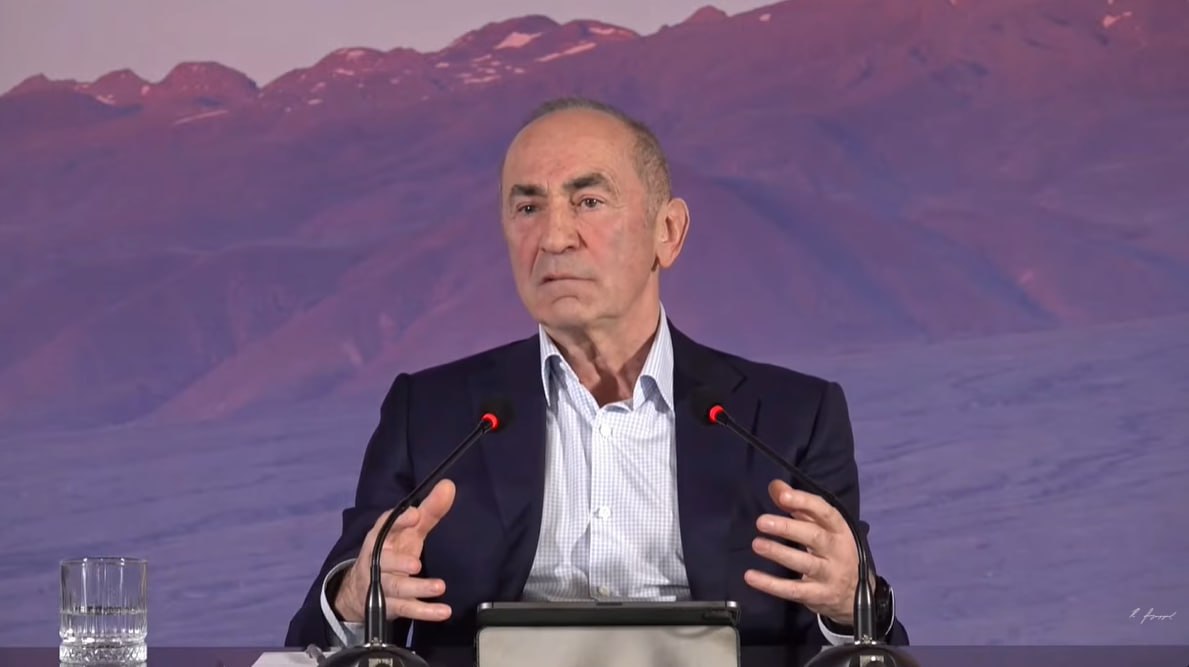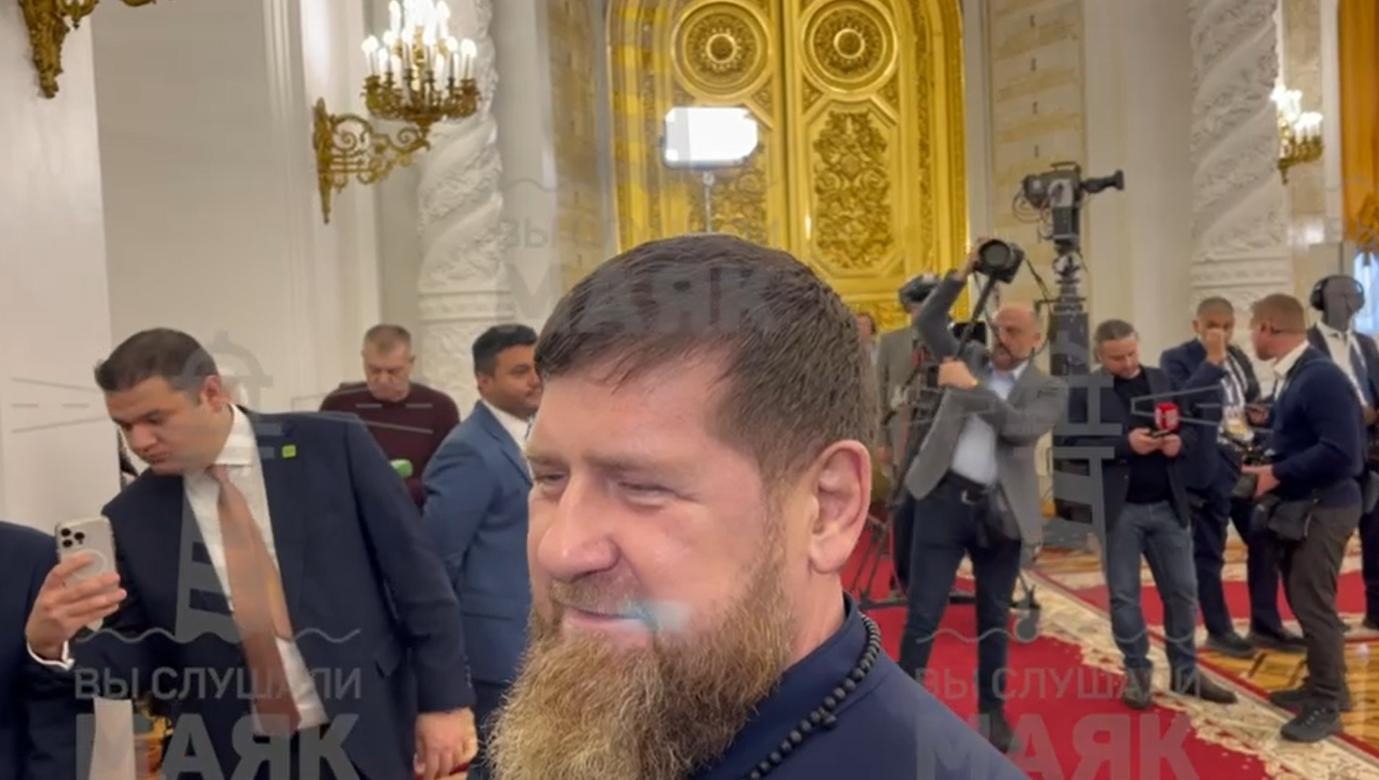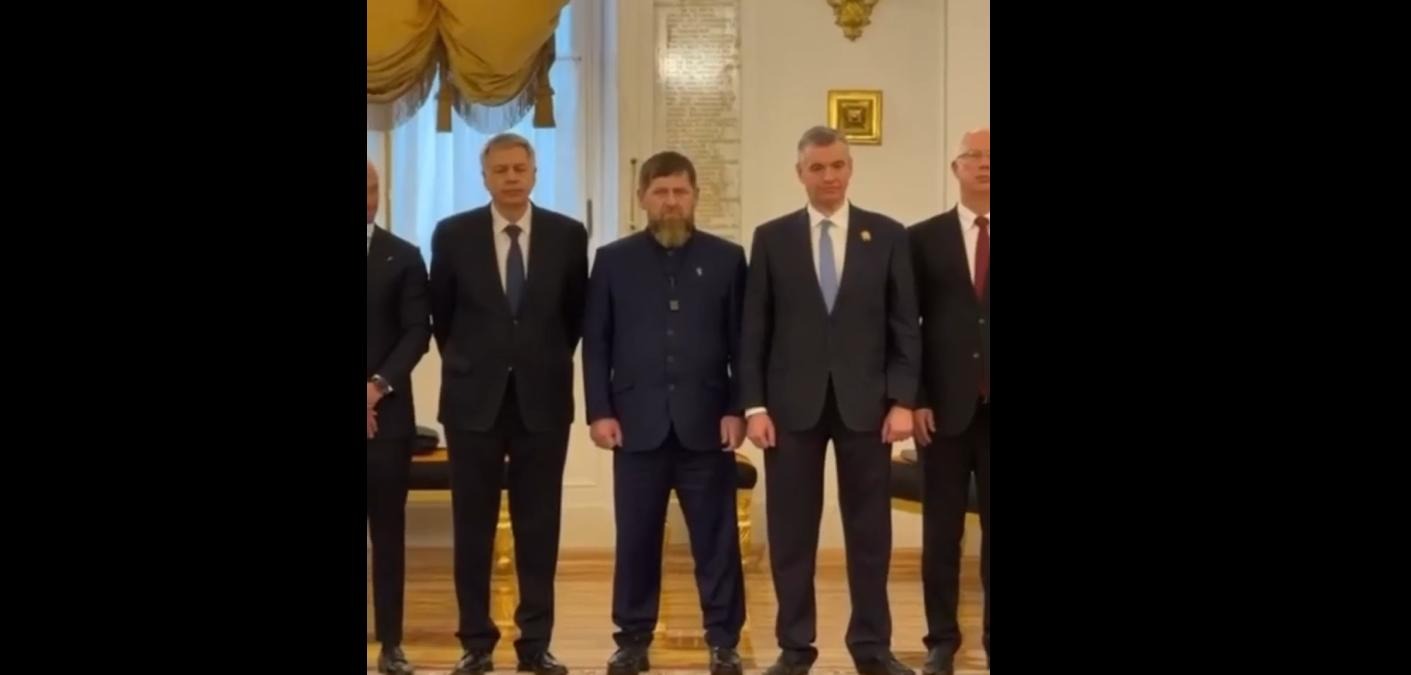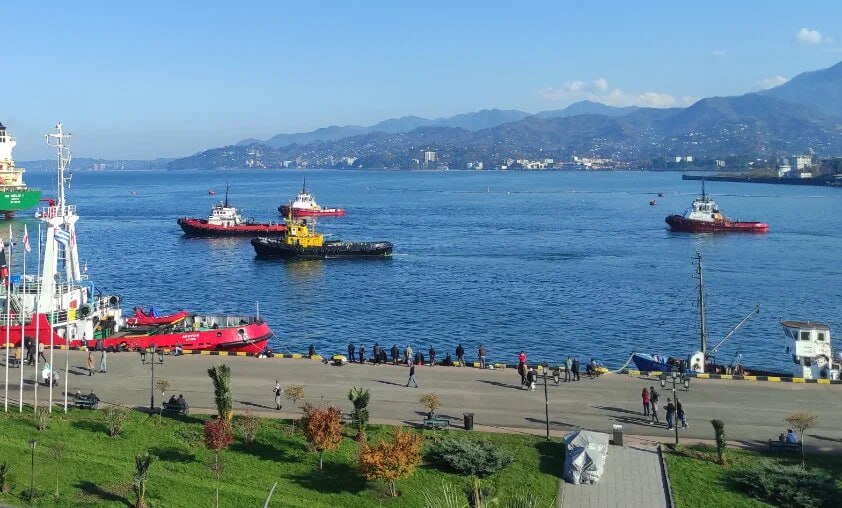Former Armenian President Robert Kocharyan warned against the current government's flippant attitude toward possible harsh responses from Moscow. He believes the authorities fail to grasp the scale of the potential impact Russia could have, including tariff revisions and export blockages.
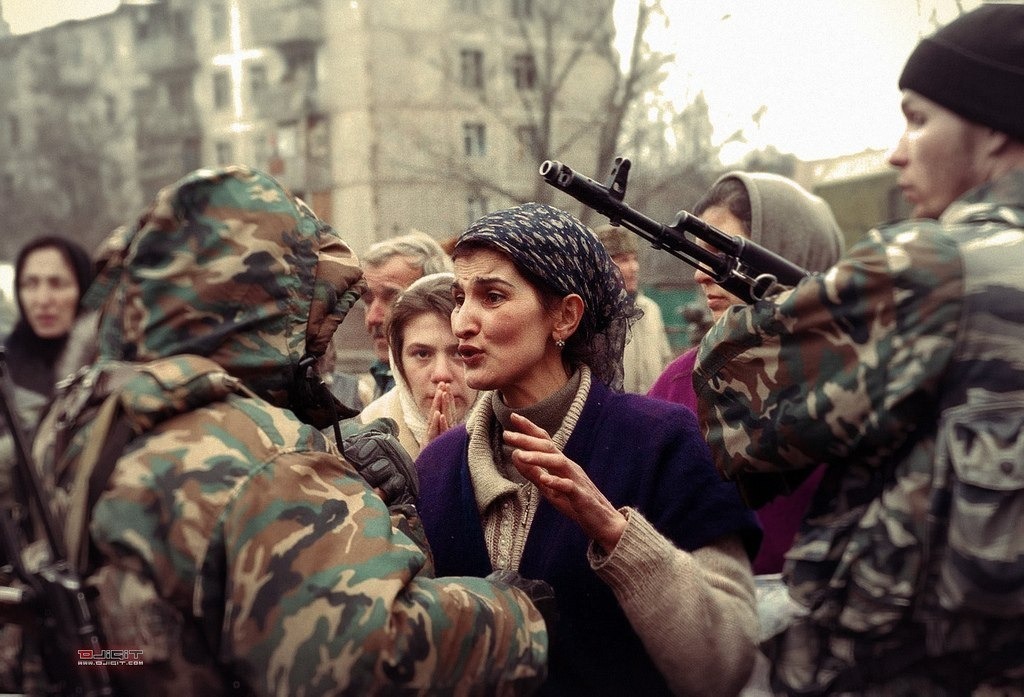
Today is International Day for the Victims of Enforced Disappearances. This concept is more than a violation of human rights. This is an effective tool for instilling an atmosphere of terror in society. Nowadays, it is used not only in the regime of military dictatorship, but also in situations of internal conflicts, mainly as a political suppression of the opposition. This practice creates a feeling of insecurity not only among the close relatives of the missing person, but also in society as a whole. And today the world community speaks of this as a global problem.
According to the Declaration on the Protection of All Persons from Enforced Disappearance, proclaimed by the General Assembly in resolution 47/133 of 18 December 1992, cases of enforced disappearance occur when “persons are arrested, detained or abducted against their will or otherwise deprived of their liberty officials of various branches or levels of government, organized groups or individuals acting on behalf of the government, with its direct or indirect support, with its permission or consent, with a subsequent refusal to report the fate or whereabouts of such persons or to acknowledge the deprivation of their liberty, which puts these persons are outside the protection of the law.
Today, the whole world celebrates the International Day of the Victims of Enforced Disappearances to honor the memory of people who disappeared for their loved ones, their environment and the whole world, left without the protection of the law and in fact deprived of all rights. For the Chechen people, this is a particularly sad date, because the fate of thousands of forcibly disappeared Chechens is still unknown.
During the two Russian-Chechen wars, according to official figures alone, more than five thousand people went missing. Such figures were voiced in 2008 by the Commissioner for Human Rights in the Chechen Republic.
The actual number of missing residents of Chechnya, as stated by representatives of Chechen public and human rights organizations, is much higher, since official statistics take into account only cases of disappearances recorded on the basis of relatives' appeals.
All of them were forcibly abducted by the Russian military, who, contrary to the assurances of the authorities that they were “restoring constitutional order” or “liberating the civilian population from terrorists” (it was under such a “cover” that two wars in Chechnya took place), behaved like real aggressors and occupiers in enemy territory.
This problem remains the most bleeding wound for the Chechen society: the impossibility to find at least the remains of relatives and friends, to bury them according to religion and centuries-old customs, to mourn them like a human being.
The whole horror of terror and violence in Chechnya will be illustrated by the story:
"The COMMANDANT PROMISED TO SOLVE ...":
The Betilgiriev family lived in the village of Dachu-Borzoy in the Grozny region of Chechnya. With Hassan, the future father of her daughter, Seda met when she was 18 years old. She just entered school No. 12, where she mastered the specialty of a sausage purveyor. Hasan and his family lived and worked in Saratov, at the time of their acquaintance, he just came to visit. I saw Seda by chance and, as they say, "disappeared." A couple of days later, he ambushed the girl at the spring and kidnapped her. It was 1979. Seda did not want this marriage, but, being afraid of evil tongues, she stayed with Hassan. Relatives who came for her had to put up with it. A month after the marriage, the new family took Seda with them to work. But the relationship didn't work out. Due to quarrels arising between parents and children on financial grounds, the young couple had to return to Chechnya.
It ended up that Seda stayed with her parents, and Hasan went back to Saratov. So Milana was born away from her father. She first saw his father and paternal relatives when she was 7 months old. They came to visit and took Milana, as it was supposed, for an overnight stay. But three or four hours later they brought her back: the baby was crying and asking her mother. Later it became obvious that the father and his relatives had a very strange attitude towards the child. No gifts, affection, human warmth. Naturally, the girl avoided meetings, constantly threw tantrums when they came to see. Thus, Seda raised her daughter alone, surrounding her with attention, care and love.
“I worked in the canteen of a cooperative technical school in Grozny. Traveled every day to the city and back. Milana stayed with her grandmother. My mother helped me a lot in raising her. There was boarding school No. 1 in the Zavodskoy district, all my friends spoke very well of it, they said that children were taught well there. When Milana grew up, I took her with me to the city. Their studies began in the morning, and in the evening we returned home. Milana's father has been married thirteen times since our divorce. And, of course, he had many children. To keep track of them, they needed Milana. Often they stole her from the boarding school, and I had to take her away with scandals. No, you do not think, I was not against her communication with her father, relatives. But I wanted them to love her, and they were consumerist. Without agreeing with them, I had to transfer my daughter to a rural school, where she studied until the fifth grade. Then it turned out that I had to go to my brother in the Ivanovo region. The child was with me, she studied for a year, but I could not continue her education there, and she stayed at home.
When the second Chechen war began, a guy named Lom-Ali from Bachi-Yurt kidnapped Milana. She was not yet eighteen. At that time, I lived with my husband in the Ivanovo region. Paternal relatives followed her. She understood that they would not let her live with me, and she stayed there, with Lom-Ali. I don’t know if she really wanted this ... I didn’t want a repetition of my fate for my daughter, but I accepted her choice with dignity. Having bought and packed all the best of clothes in my suitcases, I went to her place. My sister Satsita was with me.
In early November 2001, at the request of her paternal aunt Aset Yakhyaeva, I asked Milana to come to the village of Serzhen-Yurt to my older sister Zalpa Kadyrova Zalpa's son Jamal Ibluev was going to get married and, as usual, everyone was preparing for his wedding. Aset and Milana went to them to help with pre-wedding chores. All day Milana painted the house, in the evening the audience began to figure out who would spend the night where. The Sadulaevs live next door to the Kadyrov family in Serzhen-Yurt. Tamusa Sadulayeva had a small shop, and she often went to the city of Khasav-Yurt for goods. She did not return home that evening. Then her daughter Petimat invited Aset and Milana to visit with an overnight stay. The latter agreed. In addition to them, there were five more girls in the Sadulaevs' house on the night of November 6-7, 2001. Aset and Milana are located in the hallway, which also serves as a kitchen, the rest - in the rooms farthest from the entrance.
On November 7, 2001, at dawn, between five and six o'clock, armed men in military uniform broke into the Sadulaevs' house. There were five of them, one of them was wearing a mask. They spoke in pure Russian, without an accent. How the military entered the house is not known, since the doors were not broken and the lock was not damaged. Bursting in, they stood over the sleeping girls, and one of them - Petimat Sadulayeva (she is the main witness in this case) - pressed her throat with the muzzle of a machine gun and ordered her not to make noise. Petimat asked the uninvited aliens what they needed. In response, one of them asked where the men were. The girl replied that there were no men in the house. After that, the military demanded gold items and money. Having received the answer that there was no money and no jewelry either, he looked around, saw gold earrings and a chain on the windowsill, and immediately grabbed them.
In the hope that he would put them back, Petimat said that they were not gold, but the military man cut her off with foul language. There were 100 rubles on the table, one of the servicemen took them, but the other snatched the money from his hands and put it in his pocket. Then one of the soldiers ordered Petimat to show them other rooms of the house. Petimat refused, but he grabbed her and dragged her into the next room. Then the girl lost consciousness from fright, when she came to herself, she saw how one of the servicemen was reassuring the other girls.
She heard how they insulted the girls, swearing obscenely, threatening to shoot everyone. And one of them began to pull off their blankets, in an extremely cheeky manner, demanding that they do not hide their legs, demonstrate "their beauty." Another soldier, who was wearing a mask, interrupted this mockery with the words: "Don't touch the girls!" When that scoundrel began to mock again, the second one in the mask grabbed him and threw him out of the room. All five girls were laid on a sofa, threatened with execution, and told that they would stay in the house until dawn. And in the morning they must take their passports, and they will be taken to the commandant's office, where "it will be clear" what to do with them.
The military turned off the light in the house, scurried around there, illuminating them with flashlights. So they left in the dark, silently and imperceptibly. There was no clatter, no slamming of doors, not a single floorboard creaked.
Frightened girls, frozen on the couch, were afraid to get up. When dawn broke, Maryam Ibluyeva entered the hallway where Aset and Milana were sleeping and found that they were gone. The girl jumped out into the street, began to scream, call for help. Then she reported their abduction to her father, Abdurakhman Ibluev. Abdurakhman immediately went in search of the detained women. Going out into the street, he learned from his fellow villagers that the Russian security forces were carrying out a special “cleansing” operation here and the village was tightly surrounded by them along the perimeter. Armored vehicles were also involved in this operation. It turned out that the administration of the village and most of the residents knew about the “cleansing” operation.
Between the city of Shali and Serzhen-Yurt there was a checkpoint of Russian security forces. Relatives of Aset and Milana asked the military from this post about the APCs with the detained women. One of them replied that they had heard on the radio that two women had been detained. However, the next day that soldier was removed from his post. In the morning, the security forces who carried out the “cleansing” in Serzhen-Yurt lined up in a column to leave. Abdurakhman Ibluev, who arrived in time for the column, together with the deputy head of the village administration and several residents, turned to Nakhaev, the military commandant of the Shali district, who was here and told about the abduction of two women last night. They explained that the military did not even demand passports from the girls. Their documents were left at home. The commandant promised to sort it out, saying that they would check their passports through a computer and, if everything went well, they would be released.
Having said this, Nakhaev approached the military column. At this time, two armored personnel carriers and a Kamaz car of one of the local residents drove by. Subsequently, the driver of this car told Milana's relatives that those two armored personnel carriers turned off on the territory of the Russian military unit "DON-2", stationed at that time between the city of Shali and Serzhen-Yurt. After they had passed, the military closed the road.
Then Nakhaev got into an armored personnel carrier and, with the passports of Aset and Milana, drove off from Serzhen-Yurt towards Shali, asking him to wait for him. They waited, but the commandant was delayed for some reason. Then Abdurakhman Ibluev and Khamzat Sadulaev followed him and saw two armored personnel carriers standing on the outskirts of the village of Serzhen-Yurt. The very ones that Nakhaev had missed shortly before. He talked to the servicemen from these armored personnel carriers, then turned around and drove towards the convoy. He gave the girls' passports to their relatives and told them to come to the city of Shali for them. Already in the city, Nakhaev gave them a note, presenting which they would allegedly be able to pick up the girls from the temporary department of internal affairs of the district. Arriving at the VOVD of the Shali district, the relatives of the abducted gave the police officers their passports and a note from the commandant. The policemen, having checked the girls' passports against a computer database, returned them, saying that they had no claims against these people. And they don't even have women.
After that, it became clear that they were simply "led by the nose." It was impossible to delay. Relatives of the detained women immediately apply to the prosecutor's office of the Shali district. On the same day, employees of the prosecutor's office arrive in the village of Serzhen-Yurt. When interviewing local residents, it turns out that at night an armored personnel carrier with servicemen drove into the village to get water, and they took the two women away. Employees of the prosecutor's office removed traces of this armored personnel carrier, questioned witnesses and left.
Later it became known that a special “cleansing” operation in the village of Serzhen-Yurt was carried out by servicemen of the Shalinsk military commandant’s office headed by commandant Nakhaev, officers of the VOVD of the Shali district, servicemen of the 70th regiment of the Russian army, which was stationed on the outskirts of the city of Shali, officers of the FSB and the GRU . During the first week after the women were abducted, their relatives repeatedly met with Nakhaev and asked him to release them. But the commandant, although he initially claimed that the abducted girls would be released after the check, subsequently completely renounces his words.
Seda is informed about the abduction a month later. Such an unprecedented delay was motivated by the fear that the mother simply could not stand this news. And they supposedly hoped that just about Milan and Aset would be allowed to go home. Seda says that because of this they lost a lot of time.
“As soon as we learned that Milana and her aunt had been kidnapped, my brother and I arrived. But time in such matters plays a disastrously important role. As far as I know, Milana's father and his relatives could not find the necessary amount of money that the military demanded from them. There was nothing surprising in this: looting and ransom demands for kidnapped innocent people were commonplace for Russian brave soldiers. At that time, in the village of Serzhen-Yurt, a woman was the head of the administration, her name was Toma (I won’t give her last names), people said that she had access to the detainees and helped to release them. Me and my brother Mahma, girding each other with wads of money, every day went to different people in the hope of finding at least some clue. My younger uncle Usman was also with us, now he is no longer in the world, may Allah forgive his sins! We learned that Toma had access to the head of the administration of the village of Bena-Kiotar (Benoi is a village in the Nozhai-Yurt district of Chechnya, the administrative center of the Benoi rural settlement) and tried to get to her for a very long time. Her mother refused us every time. I also understand her, she was afraid for the life of her daughter. The military commandant of the Vedeno district studied with my brother at the institute. I don't remember his name... In general, we couldn't get to this Tom and went to Shali. Taxi drivers were standing there, we asked them about my brother's classmate, and with this taxi driver we went to Vedeno.
The guards reported who had arrived, and my brother was allowed into the office. A friend of my brother gave us a UAZ car, a driver, and we were taken to his house. Their mother was already waiting there with a laid table. An hour later he came home from work. After discussing our situation with him, we report that Toma refuses to come with us. To this, the owner of the house says that he once helped Toma's nephew, and she will not be able to refuse us. The next morning, the three of us go to Tom's in his working car. We were met by her mother and, as usual, said that her daughter was not at home. But then Tom, seeing us through the window: “Mom, come here, you won’t send them now, they found the right person!”
After a short conversation, the three of them, leaving me in the house, went to the commandant's office. Only Tome was allowed to speak there. It was just before the New Year. From there, Tom returns with a demand from the head of the Shali commandant's office: he needs two thousand dollars, a Christmas tree and food for the festive table. I would give everything I have to our family. We were told that we had only 5 days at our disposal, and that we should not talk about it. On the day indicated, me, my brother, his friend, our uncle and Tom - we all went to the exchange. We waited while Toma talked to the servicemen. I didn't have enough air. I had to hug my daughter, no matter what happens next. Toma came back and said everything was cancelled. Her words hit me like thunder. My head was spinning, I did not understand what was happening. The servicemen told Toma that Milana's father and her stepmother had told the people in the village about this ransom and that this was why it would not take place. And Toma was so threatened that after that she didn’t go anywhere else with us. Even when the investigator called her to confirm this conversation with the servicemen, she did not come. I don't blame her, honestly. It was a terrible time, and the fact that you are a woman did not change anything.
About three months after the abduction of Milana and Aset, their relatives met with a resident of the village of Germenchuk, who was detained and was in the Russian military unit "DON-2". He said that in the location of this unit, in the pit, there were two women. The soldiers threw a jersey and a blanket into the pit, taking pity on them, as it was very cold and they were freezing. Their crying was heard. However, he did not want to go to the prosecutor's office with us. It was also possible to find out through intermediaries that Aset Yakhyaeva and Milana Betelgirieva from DON-2 were transferred to the 70th regiment of the Russian army. And they, in turn, handed over the women to the FSB officers in Khankala, where the main military base of the federal forces in Chechnya is located. The FSB officers tortured them, trying to force them to confess to their participation in armed formations opposing Russian troops. Then Milan was accused under Article 208 of the Criminal Code of the Russian Federation. And for Aset, they prepared documents stating that they allegedly seized her walkie-talkie, drugs, and she also participated in illegal armed formations. The mediator told the relatives that it would be difficult to get both of them out of Khankala. You need to pull out Milana first, since she only has one article. And then try to help out Aset. Things didn't go any further with this man. Later there were rumors that the abducted women were in a prison in Pyatigorsk. No one has officially confirmed this information. For help in searching for the abducted relatives turned to the head of the administration of the Chechen Republic A.A. Kadyrov, to the deputy of the State Duma of the Russian Federation A. Aslakhanov.
“While I went with women from the “Mothers of Chechnya” society to rallies, searched in prisons, went around morgues and hospitals, my ex-husband and his wife decided to get rich on my grief. I had all the documents of Milana, a birth certificate, certificates from school, a single mother's book. Having forged these documents, they applied to the European Court in 2007. While I was exhausted and wandering like a shadow, looking for my daughter, they started their scheme. For some reason, even Seda, the only daughter of the kidnapped Aset, they did not include in the complaint as a victim. Madina, the head of the Mothers of Chechnya society, forced them to turn her on with the help of her lawyers. The complaint was recognized as justified, and a positive decision was made. Did it play any role? Do not be ridiculous, Russia wanted to spit on the rulings of the European Court! They didn't even give me her things. They burned her photographs. I don't know which one is worse. In November, 15 years have passed since then. Why were they taken? This question never leaves my mind. There are suggestions that when Milana was passing through the post, someone noticed her, and her aunt was taken away so as not to leave a witness. And they probably followed her. Otherwise, how did they know exactly where she was sleeping?
I never let my daughter work, I always felt sorry for her. Both my brothers and my mother all loved her madly. She even ate like a bird. He won't say a hurtful word to anyone. As long as they don't touch her. I am not alone, I have a husband, children. But my soul without Milana yearns for loneliness. It's like I'm not living my own life. The children miss her very much, especially my son Mohmad. He cries when he sees pictures of his sister. And I don't remember a day that would go by without thinking about my daughter. In 2001, I gave a sacrifice for Milan. That night I had a dream that she had returned home. And I shout to her: "Milana, you're back!" And she answered: “I was allowed to return, but my aunt was not.”
One day my little bird will be back, I can't stop believing it. Hope gives me strength."
This story is also tragic in that it touched not only Seda. There is another person who has lost the most precious thing. Maternal warmth - what could be more expensive? It is impossible to remain silent about the life of Yaha, whose mother was kidnapped along with Milana. Aset Abdulovna Yakhyaeva, as mentioned above, is Milan's paternal aunt. For reasons unknown, her captors are with her niece. Yaha was her mother's only, long-awaited late child. Prior to her birth, Aset's three children died in infancy. It is not difficult to imagine how tender the relationship between mother and daughter was. Ziyaudi Aset met her future husband through relatives, it came to marriage, but the relationship did not work out, despite twelve years of marriage. Failed family life, quarrels - Aset carefully concealed all this, protecting her beloved baby from painful impressions, although the girl was not even a year old. The mother was sure: the children feel everything. She gave all her love to the baby. But this happiness also came to an end. Unable to withstand the unhealthy home environment and constant pressure from her husband, Aset makes the most difficult decision of his life - to leave. Naturally, she was not allowed to take the child. When mom left, Yaha was a year old. She endured everything that can befall a child in a Chechen traditional family, where there is no pity, compassion, where the father does not know that he also has responsibilities, where they reproach you for being abandoned.
“I remember our first meeting already at a conscious age, but we had joint photographs from about my two years. My mother sent her brother for me, and my paternal relatives let me go for a day or two. Mom did not give up: she opened her own grocery store, got on her feet. She sent me many gifts, however, my father sent everything back, saying that since she loved her daughter so much, she had to live with him and endure everything. Frankly, at first I myself thought so, and in the depths of my soul I harbored resentment. But then, when I got married myself, and I got married early, at the age of 16, I realized that there are things that cannot be tolerated.
My early years were spent with my grandmother. At first, dad was very sorry for me, he even sat down and cried with me. In general, childhood was not the most joyful. The only consolation was the weekend, when you can visit your mother. Mom's hands healed from any pain, not only mental, but also physical. And the last one was enough. There was a very unpleasant incident once, after which a trace of a tarpaulin boot was imprinted on my face. At this point, my father had no choice but to give me to my mother. Because he already had a family of his own. I graduated from the eight classes of a rural school in Duba-Yurt (a village in the Shali district of Chechnya), then my mother got me a job at the Sewing School in the Gikalovsky district. Soon after that, I married Uwais. My husband lived in the Saratov region, and he moved me there. Mom was against this marriage, my departure. Three times I came to say goodbye to her, she stubbornly did not give her consent, and I did not want to leave, leaving her like that. And then I was spun by children, life, household - all together.
When my mother was kidnapped, I was in Saratov with my family. I, like Seda, was not immediately informed. Everyone thought they would. I do not remember the date when I found out about the trouble, but it was about a month after the kidnapping. That day began as usual for me. I was rocking my daughter Aishat in the cradle, and then the phone rang. The husband slept in the next room. I picked up the phone and heard the voice of Raisa, my cousin's wife: “Why don't you come home? The kid has been kidnapped for a month now!” I didn’t understand anything, we called Decoy another aunt, and the daughters-in-law called my mother. It never occurred to me that she was talking about her mother. And when I realized, I started to get hysterical, the child burst into tears, and I didn’t think anything. Children's crying, my screams - my husband jumped up, tried to calm me down ... It turns out that he knew everything, but did not dare to tell me. And, of course, I hoped for the best. I left on the same day for Chechnya. By the standards set by other stories of kidnapped people, it was inexcusably late. A whole month has passed! What didn’t we do then, where didn’t we go! Even now, as I remember, it seems that it was not with me.
Since then, we have not heard anything from Milan or about my mother. I often see her in my dreams. I used to dream about her in military uniform, she walked and carried Milana in her arms. Recently, I see her very beautiful, elegant and happy. In my prayers, I ask Allah to ease their situation, if they are suffering, if they are dead, may He forgive their sins, and if they are alive, may they find their way home.
The material was published in the journal "DOSH" No. 6-2017.
